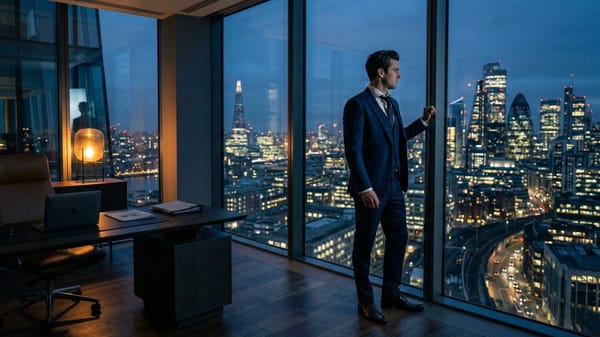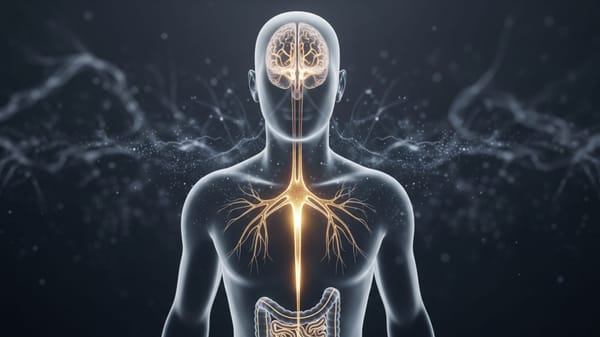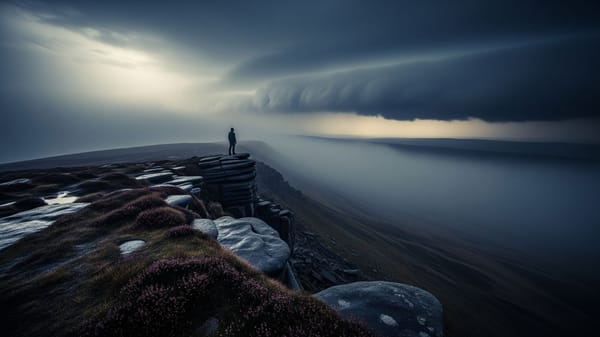The Seductive Ghost: A Call for a More Conscious Conversation About Alcohol
It's a ritual as old as time, but is it serving you? Phil Jessé's philosophical guide explores our complex relationship with alcohol, challenging us to move beyond autopilot and make more conscious choices.
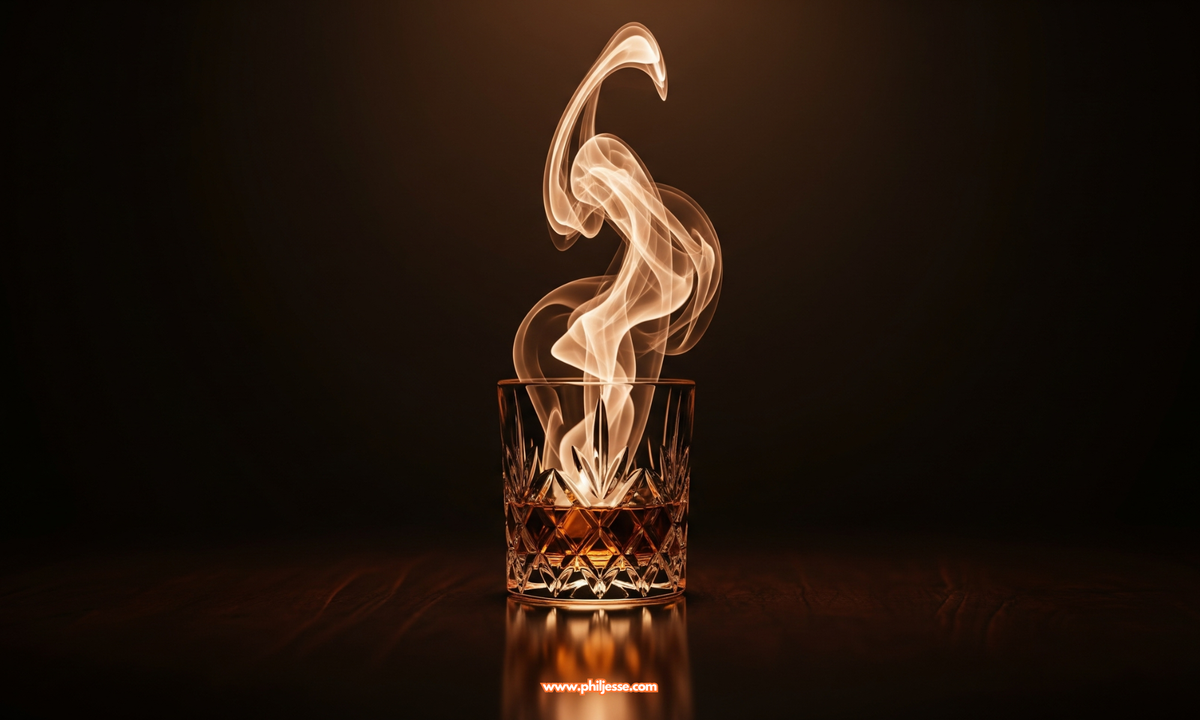
We are masters of seduction. Not just in the romantic sense, but in the stories we tell, the brands we build, and the rituals we create. I remember being utterly captivated by the craft beer revolution. The independent brewers weren't just selling beer; they were selling a narrative. They were artisans, rebels, storytellers. The artwork on the cans was gallery-worthy. I’d buy them for the design alone, an intricate, beautiful mask for the liquid inside, which I would, of course, drink anyway. The allure was irresistible.
That allure, that seductive ghost, is at the heart of our collective relationship with alcohol. It’s a relationship as old as civilisation itself, deeply woven into the fabric of our social lives, yet one we rarely examine with true, sober clarity. My previous article, "From Foggy to Focused", was a personal account of my decision to step away from alcohol. This is not a sequel. This is an invitation to a broader, more philosophical conversation.
This isn't an article written to condemn, nor is it a call for prohibition. It is a challenge. A challenge to pause, to question, and to bring conscious awareness to a substance that has shaped societies for millennia. It’s an exploration of why we drink, what it truly does for us—and to us—and how we might begin to navigate this complex relationship with more intention, especially on a journey of self-development.
A Ritual as Old as Time
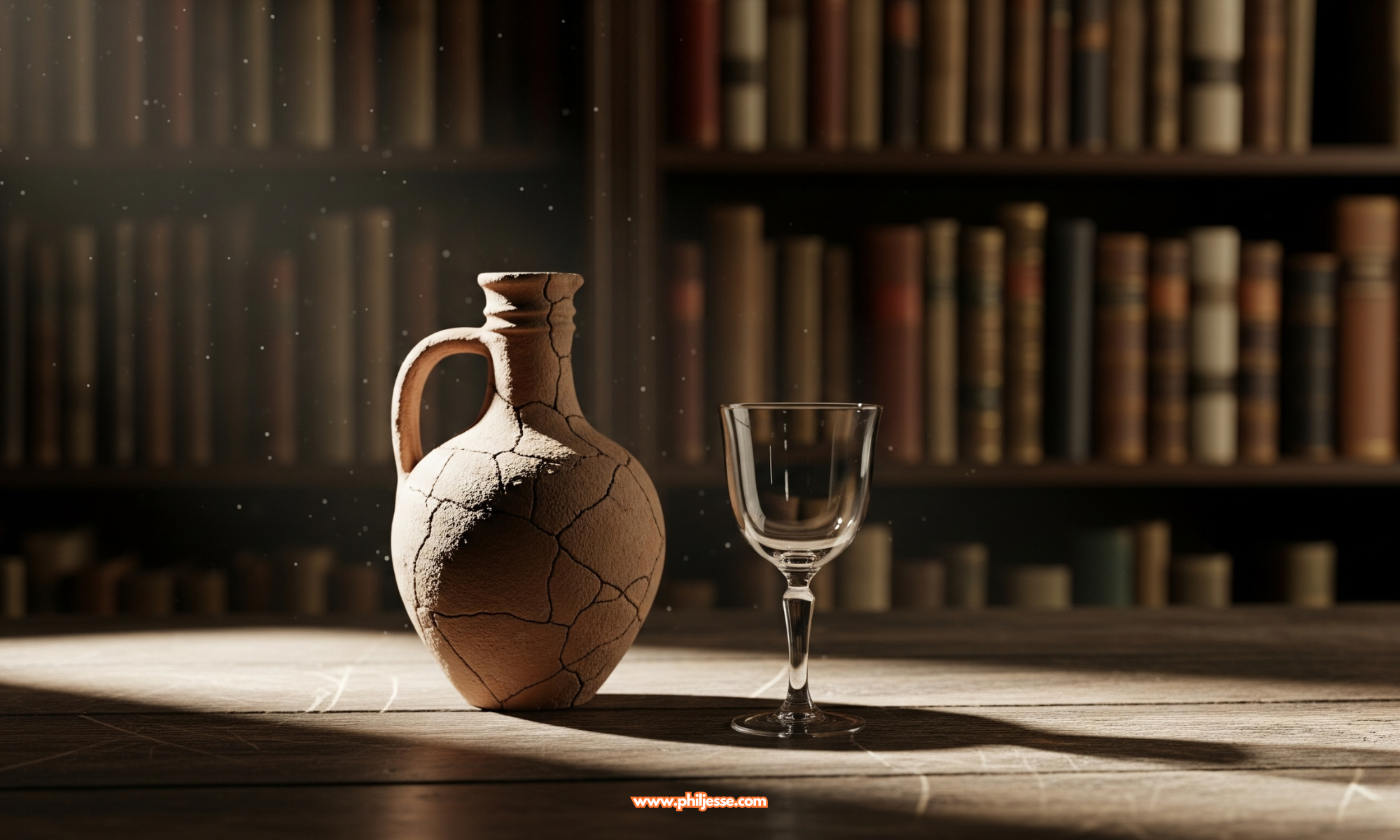
Our connection to alcohol is not a modern phenomenon. Archaeologists have found evidence of fermented beverages dating back to 7000 BCE in China. The ancient Mesopotamians had recipes for beer around 4000 BCE, and it was so integral to their culture that it was prescribed by physicians and regulated in the Code of Hammurabi. From the watered-down wine of Greek symposia—where philosophy and intoxication danced hand-in-hand—to the pub functioning as the heart of British community life for centuries, alcohol has been our constant companion.
It has been a social lubricant, a religious sacrament, a perceived medicine, and a marker of celebration. This history is important because it explains the weight of our conditioning. We are participating in a ritual that is thousands of years old.
We celebrate, let's drink. We commiserate, let's drink. We mourn, let’s drink. We are happy, let’s drink. We are unhappy, let’s drink.
This script is so deeply embedded that we follow it on autopilot. I certainly did. For years, socialising and drinking were synonymous. It was the entry fee for connection. And for me, as a neurodivergent individual navigating a world not always built for my sensory wiring, it was something more. It was a mask. A sensory dampener. In a loud pub, the overwhelming cacophony of lights, sounds, and smells would recede. The anxiety of navigating complex social cues would soften. Alcohol felt like throwing on Harry Potter's invisibility cloak; it didn't make me disappear, but it seemed to dissolve the feelings of anxiety, the sensory overload, the constant, low-level stress of trying to fit in. Or so I thought.
A Shifting Tide?
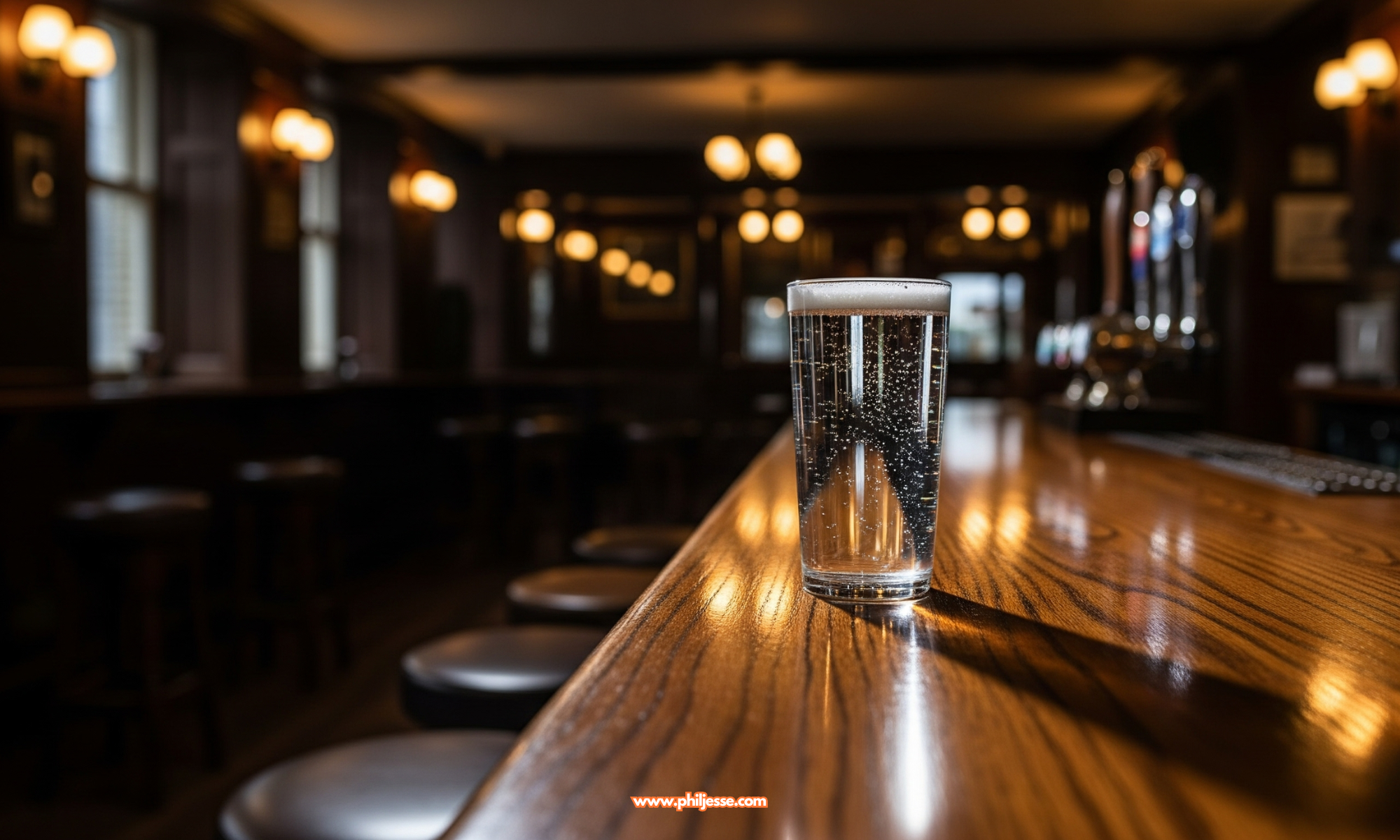
For generations, this societal script has gone largely unchallenged. Yet, something is shifting. Across the UK, pubs are closing at an alarming rate. While rising costs and changes in business rates are the immediate culprits, we must ask if there’s a deeper cultural tremor at play. Are we, as a society, beginning to drink less?
The data suggests a generational divide. While older generations like Baby Boomers may have been "steeped in a heavier drinking culture," younger generations appear to be approaching alcohol with more caution. Some studies suggest Gen Z are drinking less than their Millennial and Gen X predecessors, often citing health concerns and a desire for a more mindful lifestyle.
It’s a fascinating, slow-motion evolution. Our understanding of alcohol's effect on the body is light years ahead of where it was. It’s hard to believe that in the 1960s, fad diets like "The Drinking Man's Diet" were wildly popular, promising weight loss through steak and whisky. We now understand, in stark clinical terms, what alcohol is to the human body: a toxin. A substance the liver must work overtime to process and expel.
The impact of this toxin extends beyond the immediate hangover. The weekend binge, a rite of passage for many, leaves a long shadow. How effective can anyone truly be on a Monday morning when their brain is dehydrated, their sleep cycle has been disrupted, and their body is still battling the inflammatory effects of a poison it spent the weekend trying to process? The acceptance of this dip in performance as a normal part of the work week is perhaps the most telling sign of alcohol's deep, and often unexamined, grip.
The Arena of the After-Work Drinks
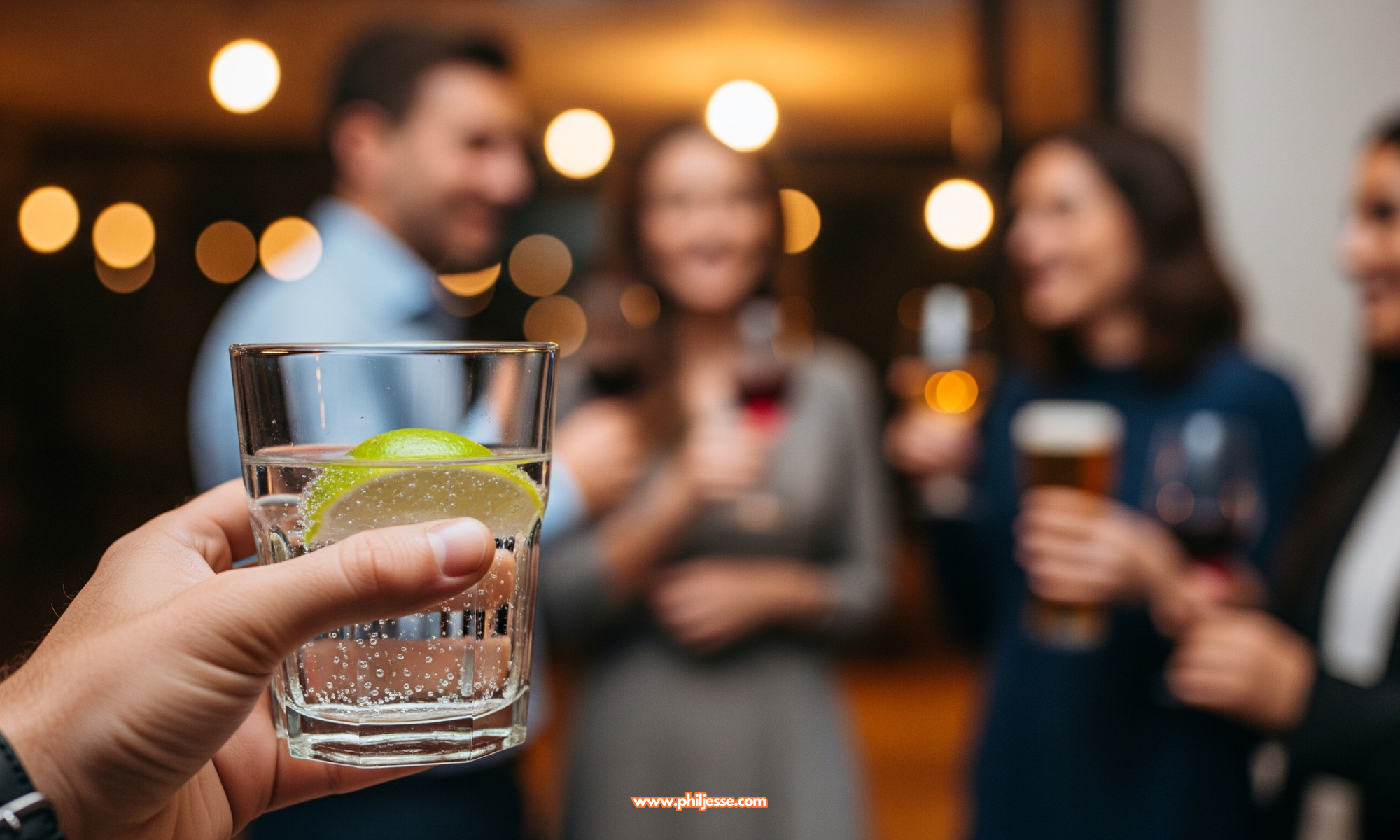
Nowhere is this cultural script more potent, and potentially more toxic, than within the modern workplace. Well-intentioned leaders, keen to foster team bonding and camaraderie, often default to the easiest and most established social ritual: the team night out, with alcohol invariably at its heart.
This is where the illusion of choice often becomes painfully thin. The invitation is presented as optional, but for many, it feels like a command performance. It’s the unspoken rule of the inner circle. To decline is to risk being perceived as not a ‘team player’, to be left out of the anecdotes and inside jokes shared the next day. It’s a subtle but powerful form of social exclusion.
If you have ever been the person nursing a soda water while being cajoled to “just have one,” to “relax, let your hair down, we’re not in work now,” you know this pressure intimately. You feel judged, othered, your personal choice viewed as a public statement against the group’s fun. It’s a profoundly uncomfortable position, forcing you to defend a boundary that shouldn't need a defence.
It’s here we must hold up a mirror. To the leaders and colleagues who instigate this culture: is this environment truly inclusive? I often wonder how much exceptional, quiet talent is lost—not to competitors, but to a culture of exclusion. How many brilliant individuals, who may not drink or who live with social anxiety, quietly disengage and eventually leave because the primary social currency of the organisation is one they cannot, or choose not to, trade in? For them, these events are not a celebration; they are a test of endurance, bringing on their own nuanced stress and anxiety.
What message does it send to the person who doesn't drink for reasons of health, religion, recovery, or simply personal preference? Are you building a team, or are you building a club where the price of admission is participation in a specific, exclusionary ritual? A company is not a family; it is a collection of individuals working towards a common goal. Fostering connection is vital, but when the primary method of connection is rooted in a substance that many are consciously choosing to move away from, you risk creating a culture that is not just exclusive, but toxic.
For those who have navigated these events sober, it's an absolute eye-opener. You see how people behave when the professional mask slips, revealing their true selves. This can be rewarding, witnessing genuine moments of connection, but it can also be deeply concerning. What is seen and heard cannot be erased. It forms a conscious memory journal, a collection of unfiltered truths that becomes harder and harder to ignore. This journal begins to shape your perception of the company culture, and you start to question if the values professed in the boardroom align with the behaviours displayed in the bar. Eventually, this line of questioning leads to the most fundamental one of all: 'Why am I here?'
The Illusion in the 0% Bottle
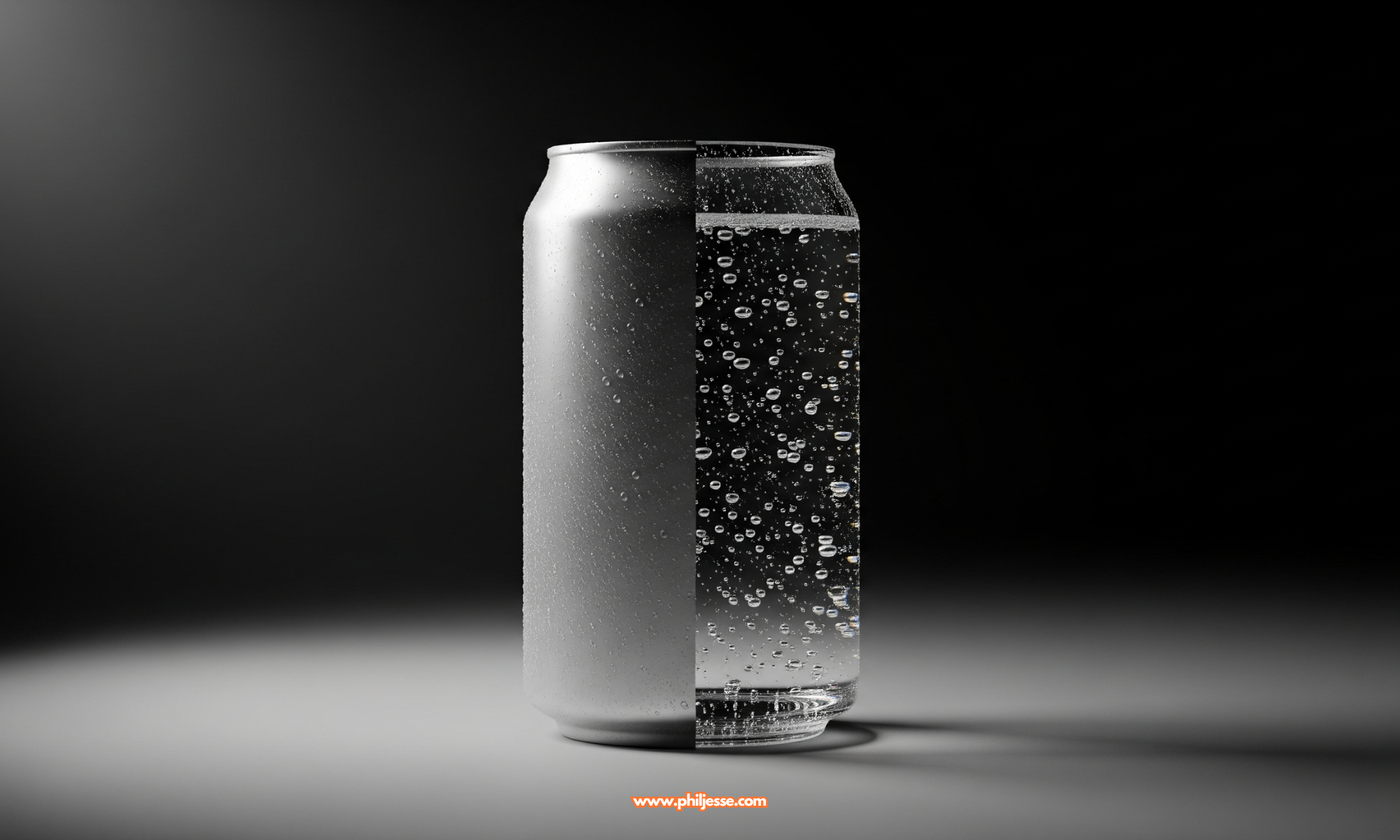
Perhaps the most fascinating chapter in this evolving story is the explosive rise of the non-alcoholic beverage market. Shelves are now brimming with 0% beers, gins, and wines, often from the very same brands that built their empires on the alcoholic originals. I’ve visited modern workplaces that proudly offer beer on tap as a perk—some alcoholic, some not. In this open-plan, co-working culture of the new age, imagine being someone who has chosen not to drink, for whatever reason. The constant presence, the normalisation, the subtle pressure—it must feel torturous at times.
This is where the conversation becomes truly philosophical. I find myself, on occasion, reaching for a non-alcoholic beer. Why? If the poison has been removed, what is it that I still crave?
I believe the answer lies in the ritual and the relentless effectiveness of marketing. The desire is linked to a lifetime of association—the clink of glasses, the feel of a cold bottle in my hand, the memories of good times with friends. It’s a powerful psychological anchor. I remember when the first alcohol-free beers hit the shelves; they tasted like garbage. But over the years, companies have invested millions to continuously improve the flavour, making it almost indistinguishable from the real thing. This wasn't an accident. It was a well-thought-through strategy presented as an act of inclusion: "For those who choose not to drink but want to fit in, we're doing you a favour." The truth is more commercial. It's about maintaining the illusion that everyone needs a glass of something that looks and tastes like the original, ensuring the brand remains in hand. Technically, they have done their job well, but at what cost?
This blurring of lines is becoming even more sophisticated with the rise of alcoholic beverages infused with ‘wellness’ ingredients like CBD oil. It’s a masterful stroke of marketing, attempting to piggyback on the wellness trend. The subtle suggestion is that the drink is somehow ‘better for you,’ masking the fact that the primary ingredient is still a toxin. It's another layer to the illusion, targeting a new generation of health-conscious consumers with a seductive, yet contradictory, message.
That desire, on some level, still exists within me. But the resilience to not drink alcohol, the conscious choice, is stronger. The 0% drink becomes a halfway house, a tool to navigate a social landscape still dominated by the expectation of holding a certain type of glass. It begs the question: are we moving towards a healthier relationship with drinking, or are we simply allowing the seductive ghost to linger, maintaining the ritual while merely removing the most obvious harm?
Towards a More Conscious Choice
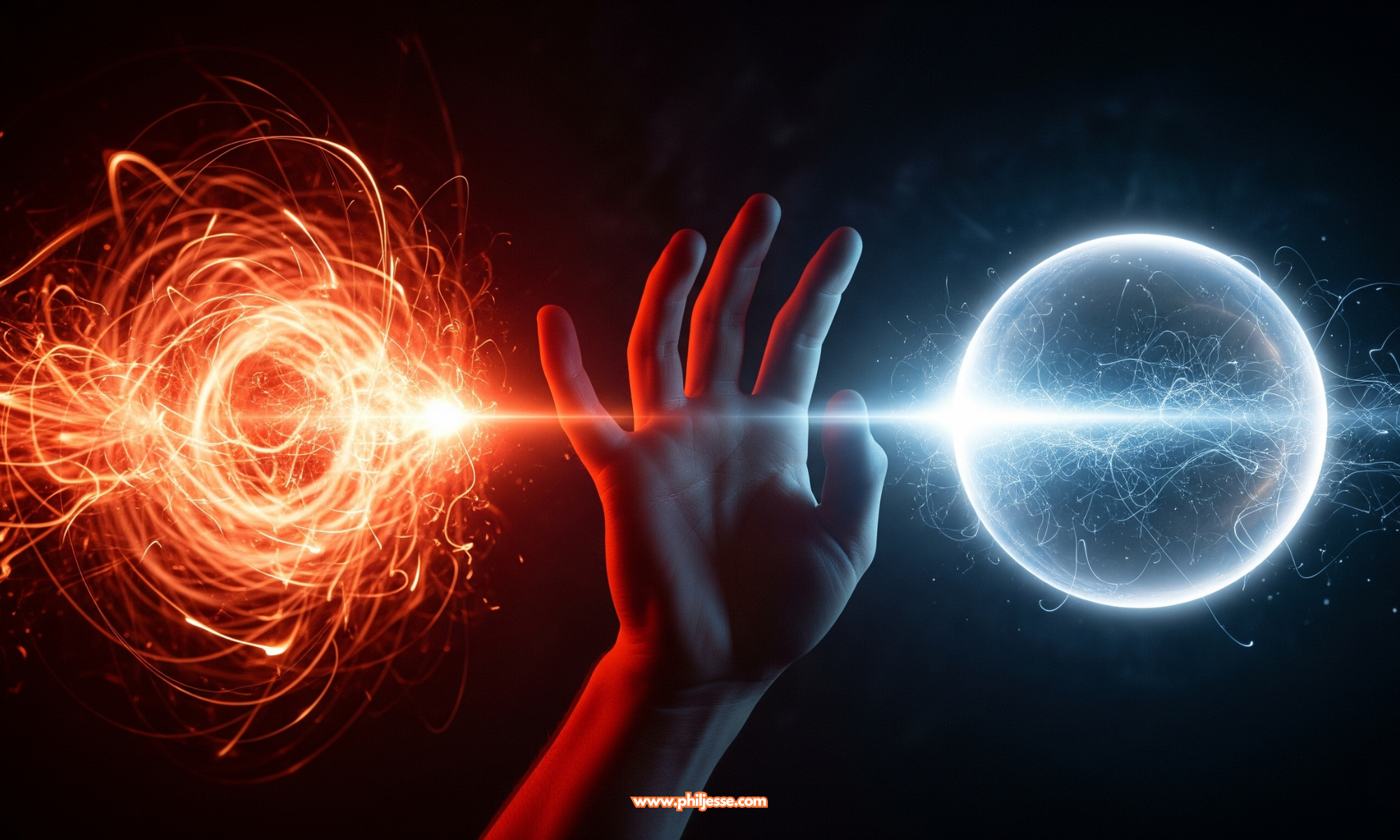
This exploration isn't about providing answers. It is about encouraging a more conscious line of questioning. On a journey of self-development, of raising our own bar, we must be willing to examine the automatic scripts we follow.
For me, stepping away from alcohol was a key part of unmasking. It allowed me to confront my sensory and social anxieties head-on, rather than numbing them. But unmasking reveals the face beneath, and for many who step away from alcohol, this is where a new, unexpected challenge begins. Thoughts, feelings, and emotions, trapped for years, are suddenly released with no well-practised skills for managing or regulating them. Alcohol, for so many, is a powerful numbing agent. For some, it was a mask for anxiety; for others, it was fuel for the abuse of themselves and those around them.
To navigate this new, raw reality is not easy, but it is essential for true growth. This is where the real work of building new coping mechanisms, of learning emotional regulation, and of constructing, as I've written before, 'The Architecture of the Self', truly begins. Your journey is your own. The intention here is not to judge your choices, but to empower them. The next time you find yourself reaching for a drink, whether it contains alcohol or not, I invite you to deploy a simple mindset tool I use for all my health choices: the ‘What, When & How Much’ theory.
Pause, just for a moment, and ask yourself:
- 1️⃣ What have I consumed today? What role is this drink playing right now?
- 2️⃣ When am I drinking this? Is it a mindful choice or an automatic reaction to a feeling or situation?
- 3️⃣ How much do I intend to drink?
This is not a tool of restriction. It is a tool of awareness. In that brief pause, you move from autopilot to pilot. You reclaim your agency. You make a conscious choice, whatever that choice may be.
Our relationship with alcohol is complex, personal, and deeply embedded in our culture. But it does not have to be an unconscious one. By questioning the allure, understanding the true cost, and bringing mindful awareness to our choices, we can begin to write a new script—one that is aligned not with the seductive ghost of societal expectation, but with the authentic, resilient, and powerful person we are striving to become.
The principles discussed are not a substitute for professional advice. Individual results from applying these concepts will vary, as your unique path, choices, and consistent efforts play the most significant role in your experiences. If you require guidance regarding specific personal, financial, medical, or mental health situations, please consult with a qualified professional. Please engage with these ideas responsibly, understanding that you are the architect of your choices and actions.


